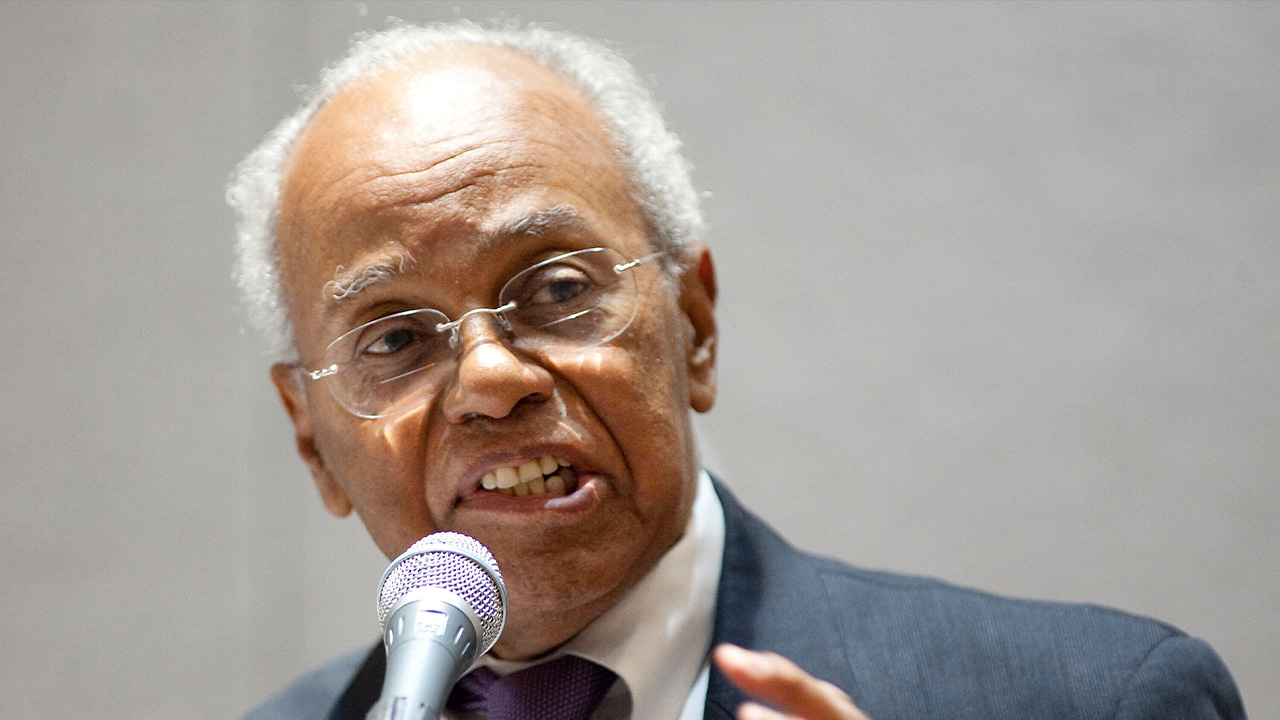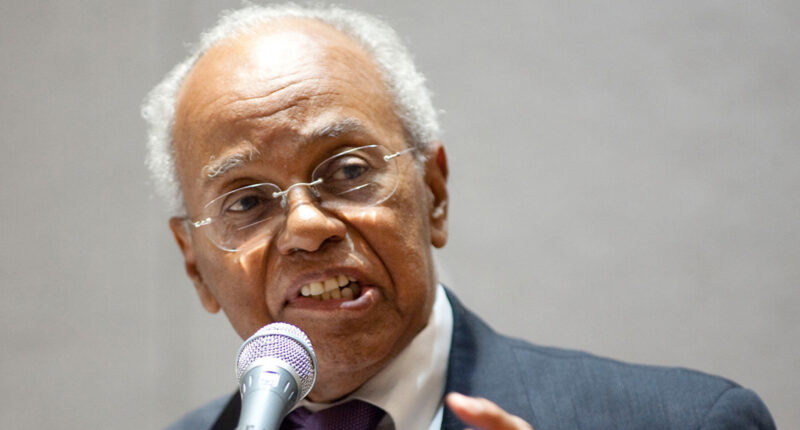Share this @internewscast.com
Joseph McNeil, a key figure in triggering nonviolent civil rights sit-ins throughout the South 65 years ago, passed away at the age of 83, according to an announcement from his university. McNeil was one of four university students from North Carolina who boldly challenged the racial segregation of Woolworth’s lunch counter in Greensboro, N.C. in 1960.
Mentioned as one of four freshmen at North Carolina A&T State University, McNeil and his peers took seats at a “whites only” counter on February 1, 1960. Despite being refused service and pressured to move by the store manager and police, the young Black men remained steadfast in their protest.
Statements from North Carolina A&T and the family did not give his cause of death or where he died. McNeil had been living in New York.
Despite recent health struggles, McNeil made an effort to attend this year’s 65th-anniversary event of the sit-in at the university. North Carolina A&T, a historically Black university, shared this information.
McNeil’s passing leaves Jibreel Khazan, formerly known as Ezell Blair Jr., as the only surviving participant of the original four. The other two participants, Franklin McCain and David Richmond, passed away in 2014 and 1990, respectively.
Reflecting on the impactful sit-in during a 2010 interview with the Associated Press, McNeil stated, “We were quite serious, and the issue that we rallied behind was a very serious issue because it represented years of suffering and disrespect and humiliation.” He emphasized the need to address the “evil” of segregation during the 50th anniversary and the International Civil Rights Center & Museum’s opening at the former Woolworth’s site.

Joseph McNeil speaks during a AFL-CIO conference in Greensboro, N.C., Jan. 16, 2010.
AP Photo/Lynn Hey, File
The sit-in sparked a significant movement, with the initial group remaining until the store’s closing on the first day. Protesters rapidly increased in number, reaching at least 1,000 within five days, and prompted sit-ins in over 50 cities across nine states. The Greensboro Woolworth counter, approximately 75 miles west of Raleigh, ended segregation within six months.
McNeil and his classmates “inspired a nation with their courageous, peaceful protest, powerfully embodying the idea that young people could change the world. His leadership and the example of the A&T Four continue to inspire our students today,” school Chancellor James Martin said in a news release. A monument to the four men sits on the A&T campus.
The Greensboro sit-in also led to the formation in Raleigh of the Student Nonviolent Coordinating Committee, which became a key part of the student direct-action civil rights movement. Demonstrations between 1960 and 1965 helped pass the 1964 Civil Rights Act and the 1965 Voting Rights Act.
McNeil and the sit-in participants leave a legacy of non-violent protests that “promote equity and social justice and social change in America and throughout the world,” museum co-founder Earl Jones said Thursday.
The students decided to act when McNeil returned to school on a bus from New York – and the racial atmosphere became more and more oppressive the further south he went, according to the AP’s story in 2010.
The first-day effort was meticulously planned, including the purchase of school supplies and toiletries and keeping the receipts to show the lunch counter was the only portion of the store where racial segregation still prevailed.
Joseph A. McNeil grew up in coastal Wilmington and was an ROTC member at A&T. He retired as a two-star major general from the Air Force Reserves in 2001 and also worked as an investment banker. McNeil is honored in Wilmington with an historical marker on a street segment named for him. Then-Vice President Kamala Harris sat at a section of the lunch counter that remains intact within the museum in 2021. Another portion is at the Smithsonian.
McNeil’s family said a tribute to honor his life will be announced separately.
McNeil’s “legacy is a testament to the power of courage and conviction,” his son, Joseph McNeil Jr., said in the family’s statement. “His impact on the civil rights movement and his service to the nation will never be forgotten.”
















